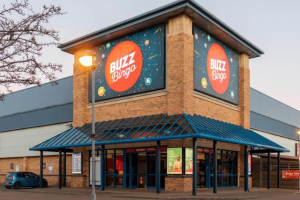Think tank brands £33bn HS2 investment ‘a gamble’

THINK tank the New Economics Foundation (NEF) says demand for the HS2 high-speed rail project has “likely been overestimated” and has suggested alternative ways for the money to be spent.
Its report also said the £33bn cost does not offer value for money.
Evidence that HS2 – which will link Birmingham with London in the first instance and then create high-speed rail links to Manchester and Leeds – would promote economic growth or tackle the north-south divide is “limited”, it suggests.
The NEF said the Government had “backed the wrong horse” and the money would be better spent on a “wider range of transport investments”.
Work is due to start on the first phase of the HS2 project in 2016 with the Birmingham-London link due to be up and running in 2026.
But NEF argues the money could be better spent elsewhere. Its suggestions include £10bn being spent on transforming rail infrastructure in northern England and the Midlands, creating new and faster east-west rail links, redeveloping stations and electrifying regional rail lines.
It also suggests £6bn could upgrade mass transport in Birmingham, Leeds, Manchester and Liverpool, including investments in large light rail schemes and bus networks
David Theiss, a researcher at the NEF, said: “HS2 is the largest transport investment in the UK’s history. At the moment it amounts to a £33bn gamble.
“Our research shows the Government is backing the wrong horse,” he said.
“Instead of pouring billions of pounds into a single line that will take 20 years to complete we should be spreading our bets on a wider range of transport investments that offer better value for money.”
But transport minister Simon Burns said: “HS2 will provide the capacity needed in a way that will support thousands of jobs and billions of pounds worth of economic benefits.”
“It is not a case of HS2 and nothing else. During 2014-19 we are investing over £9bn on the current rail network, while latest figures show that over a one year period we spent upwards of £8.7bn on our roads.”








